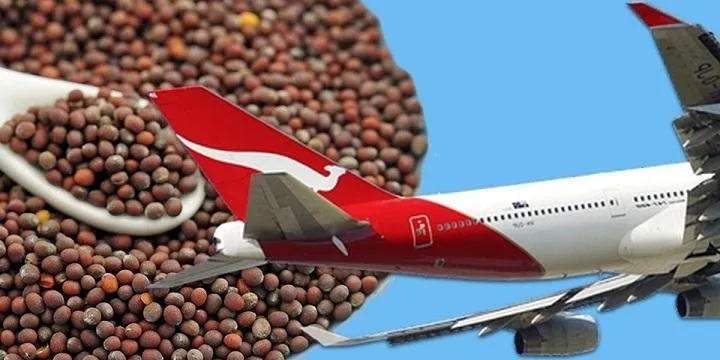The Qantas plane, a Boeing Dreamliner 787-9, was powered using a blend of 90 percent standard jet fuel and 10 percent bio-fuel, which was derived from brassica carinata, a non-food industrial mustard seed.
Brassica carinata makes sense as a crop grown specifically for use as a biofuel because it benefits farmers.

The use of blended bio-fuel in the flight would save about 18,000 kilograms, or around 39,683 pounds, of carbon emissions.
One hectare of the seed yields 2,000 liters, around 528 gallons, of oil, according to Qantas. That can produce 400 liters, or around 106 gallons, of bio-fuel, and 1,400 liters, around 370 gallons, of what the airline described as renewable diesel.
By proving mustard seed bio-fuel is viable, it could lead to a shift that would be good for farmers, for airlines, and for our planet!
I think this a welcome change. Researcher's should make it successful, corporates should make it viable, We all are responsible & accountable to provide a clean nature for future generations.
The airline is aiming to set up an Australian bio-refinery in the near future in partnership with Canadian company Agrisoma Bio-sciences, which extracted the carinata-derived fuel for the first test flight.
They can burn every drop of Canola now used in the US for food, and I, for one, would very pleased.
The "parent" strains of Canola are known as, rapeseed (rape is Latin for "turnip", also know as the Oil Seed Mustard Turnip).
It was originally used as a marine lubricant, paint thinner, and insecticide. Animal studies found it to be toxic when used as a primary food source.
I consider even the GMO version called Canola as unfit for human consumption.
It seems that this may be a good use for it.
If you enjoyed this post please Upvote, Resteem and Follow @futureentech for more creative and informative articles...
